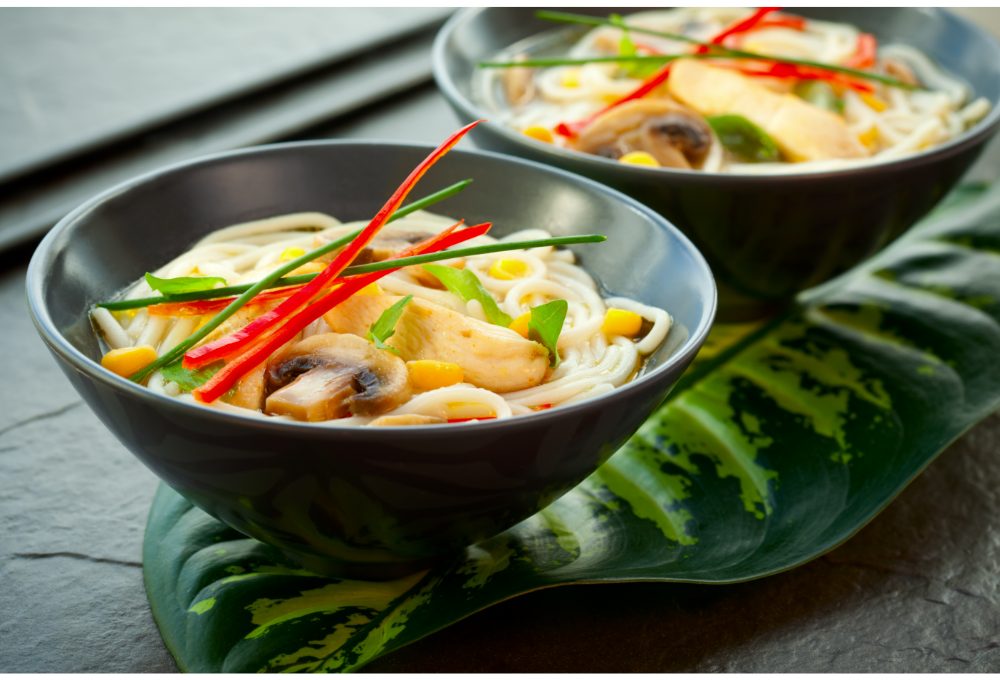Learning about different food flavors can change the way you cook. Since there are many choices, it’s important to know the differences between them so you can make your dishes taste better.
Flavorings in food, like natural extracts or man-made solutions, give it depth and complexity. Adding these flavorings to your food can make it taste better whether you’re a professional chef or just like cooking at home.
This article will explain the different kinds, how to use them, and their advantages. Learn about what food flavorings are and how they can change the way you cook.
Natural Flavorings
Natural flavorings are very popular in the food world because they offer a wide range of tastes that come straight from nature. These flavorings come from herbs, spices, fruits, vegetables, and other natural foods that can be eaten.
They give food a more authentic and complex taste. People love them because they go well with clean eating and organic food trends. After all, they bring out the natural flavors of the ingredients without adding any chemicals or preservatives.
Artificial Flavorings
On the other end of the spectrum are flavorings that are made in labs to look and taste like natural ones. These flavorings are the result of new ideas in food science.
They are consistent, last a long time, and don’t cost a lot of money. With the help of artificial flavors, food manufacturers can make products with stable flavor profiles that can handle being processed, stored, and shipped.
Bioengineered Flavorings
Bioengineered flavorings are the next big thing in food flavoring technology. These are made using complex methods, such as fermentation with genetically modified yeast or other microorganisms. With this new method, flavorings can be made that are almost the same as natural ones, but they can be made more quickly and with less damage to the environment.
Essential Oils and Extracts
Essential oils and extracts are a concentrated way to add flavor. They are like liquid versions of their source ingredients, capturing their essence. People in the food and drink business and at home love these flavorings for how pure and strong they are.
Fermentation-Derived Flavorings
One of the oldest ways to keep food fresh and add flavor is to ferment it, and the flavor industry is still coming up with new ways to use fermentation. Flavorings that come from fermentation use the natural process of fermentation to make complex flavor profiles that are hard to make any other way.
Smoke Flavorings
Smoke flavorings recreate the taste of foods that have been smoked over wood, making it easy to add a smoked flavor without using a real smoker. The smoke from burning wood chips is condensed and then dissolved in a carrier liquid to make these flavorings. They can be used in many food applications.
Spices and Herbs
Herbs and spices are the heart of cooking because they can add a wide range of flavors, from mild to strong. They come from different parts of plants, like flowers, roots, leaves, and seeds. Each part gives them different tastes and smells.
Herbs and spices not only make food taste better, but they also give it color and variety. They are important to history because they used to be the main trade routes around the world.
Another amazing thing about them is that they are good for you; many of them have anti-inflammatory and antioxidant properties. Using these natural seasonings in cooking turns simple meals into delicious culinary experiences.
Seasonings
Seasonings are the secret to making food taste different. They are made by combining spices, herbs, and salts cleverly. They can describe a culture’s food by capturing its essence and traditions. Each seasoning mix is made to make a dish taste better without overpowering the other flavors.
They are very important, whether it’s a pinch of salt to bring out the sweetness or a sprinkle of a special blend to make things warmer. Seasonings can also be good for your health because many of them contain things that are good for you.
Natural Sweeteners
Natural sweeteners are better for you than refined sugars and artificial sweeteners. This fits with the growing trend of choosing natural and organic foods. Their sources are things like plants, trees, and fruits, like honey, maple syrup, and stevia.
Unlike artificial sweeteners, they are sweet and healthy at the same time, with vitamins, minerals, and antioxidants. They are very useful in cooking and baking because they can add sweetness without the bad effects on health that come with sugar.
But eating them in moderation is important because they can still add to your calorie intake. By adding natural sweeteners to your diet, you can live a healthier life while still enjoying sweets.
Essential Oils
Essential oils come from plants and are very concentrated. They are highly valued in the culinary world because they can add strong flavor with just a few drops. The fragrant parts of plants, like flowers, herbs, and fruits, are used to make them. By distilling them, the essence of their source is captured.
Because they are strong, they should only be used in small amounts when cooking so they don’t overpower the food. Depending on where they come from, essential oils can do more than just make food taste better; they can also add to its nutritional value and have health benefits.
Custom Blends
Custom flavor house blends are the most creative thing you can do in the kitchen. They let chefs and home cooks alike create unique flavor profiles that fit their tastes and dishes. These custom mixes of herbs, spices, and other flavorings give you the most control over how you cook.
Custom blends can take ordinary ingredients and turn them into extraordinary food, whether they are used to season meats, vegetables, or specialty dishes. They make it possible to preserve cultural heritage or come up with new ways to eat. Also, making your blend can be a fun way to explore different flavors and encourage you to try new things.
Read Also: The Benefits of Buying Wholesale Drinks for Your Business
Unleashing Creativity with Food Flavorings
Adding flavorings to food makes even simple dishes stand out. Natural, artificial, and bioengineered food flavorings that taste good make the food world bigger.
They tell chefs and home cooks to try new kinds of food. Learning how to use essential oils, extracts, and custom blends can make any food taste better.
Flavorings turn regular cooking into gourmet food. They make you want to try new things in the kitchen, which is what culinary creativity is all about.
Did you like this guide? Great! Please browse our website for more!

Jasper Bruxner is a passionate and versatile blogger with a keen eye for trends and a knack for crafting engaging content. As the founder of WendyWaldman.com, he has established himself as a trusted resource in a diverse range of niches, including food, tech, health, travel, business, lifestyle, and news. He tends to share the latest tech news, trends, and updates with the community built around Wendywaldman. His expertise and engaging writing style have attracted a loyal following, making him a respected voice in the online community.




